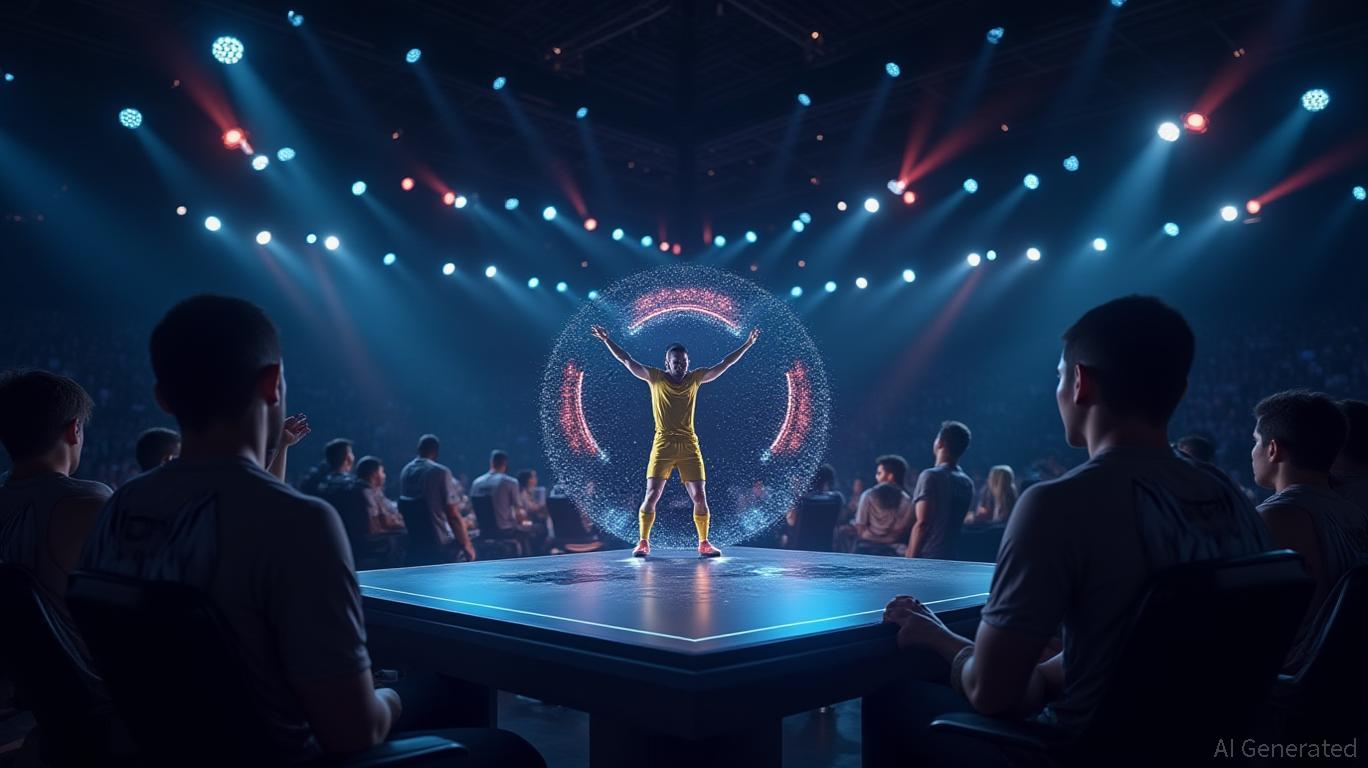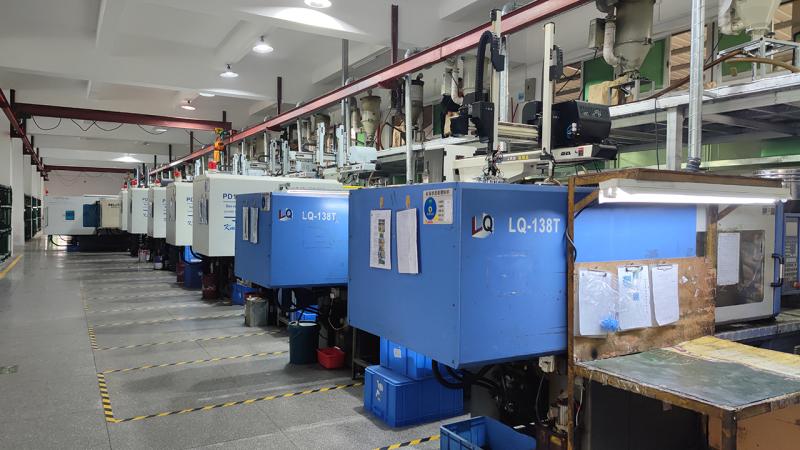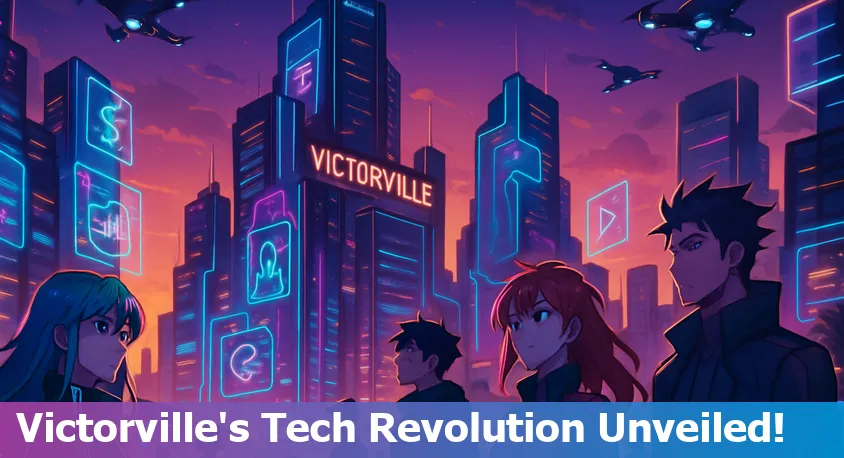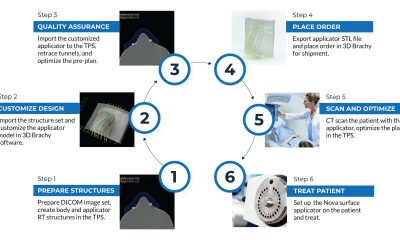Too Long; Didn’t Read:
Victorville, CA is rapidly becoming a smart city hub with Nightfood Holdings’ $41M acquisition of a 155-room Holiday Inn, integrating AI-powered Skytech robots to boost hotel revenues 25-40%. The city also leads in AI public safety, deploying ShotSpotter gunshot detection and advancing wildfire monitoring with FireSat satellites.
Victorville’s technology and AI ecosystem is advancing rapidly, highlighted by Nightfood Holdings Inc.’s strategic $41 million acquisition of the 155-room Holiday Inn on Palmdale Road, set to become a flagship AI-powered Courtyard by Marriott.
This property integrates Skytech robotic technologies – including laundry assistant, concierge, and sweeper robots – to streamline operations, reduce labor costs, and improve guest service, with projected revenue increases of 25-40% post-renovation.
The deal’s innovative financing includes a $10 million mortgage assumption, $31 million in Series C Convertible Preferred Stock, and a $5 million performance-based earnout tied to milestones such as a new fitness center launch and Marriott branding.
Nightfood’s Robotics-as-a-Service (RaaS) model exemplifies AI’s transformative role in hospitality, addressing industry labor shortages and enhancing profitability, while the global service robotics market is projected to surpass $170 billion by 2030.
These developments position Victorville as a growing hub for smart-city innovation, supported by local initiatives like Nucamp Bootcamp, which offers practical AI education and coding training for workforce development.
This synergy between advanced AI applications and accessible tech education fosters Victorville’s rise as a model for integrating AI and robotics at the community level.
For more details, see the comprehensive Nightfood Holdings acquisition report, the hospitality automation expansion, and the city’s latest tech news update.
Table of Contents
- Nightfood Holdings Acquires Victorville Holiday Inn to Launch Robot-Powered Hotel
- Victorville Implements ShotSpotter AI Gunshot Detection as County First
- Senator Blumenthal Raises Privacy Issues Over AI-Driven Airline Pricing
- Cal Fire and Partners Launch FireSat Satellite Constellation for AI Wildfire Detection
- Nightfood Holdings Expands Robotics-as-a-Service with Skytech Acquisition
- Victorville’s 2025-26 Budget Prioritizes Technology and Infrastructure Investments
- Robotics Technology Transforms Operations at Victorville Hotel
- Airlines’ Adoption of AI Pricing Sparks Privacy and Fairness Debate
- Victorville Advances Smart City Innovations with AI and Robotics
- Declining California Gas Prices Offer Economic Relief to Victorville Residents
- Conclusion: Victorville Sets a Model for Integrating AI and Tech Locally
- Frequently Asked Questions
Nightfood Holdings Acquires Victorville Holiday Inn to Launch Robot-Powered Hotel
(Up)
Nightfood Holdings has embarked on a transformative $41 million acquisition of the 155-room Holiday Inn located at 15494 Palmdale Road, Victorville, aiming to rebrand it as a Courtyard by Marriott and position it as a flagship model for AI-driven hospitality automation.
The property is undergoing extensive renovations, including a new state-of-the-art fitness center, and incorporates Skytech Automated Solutions’ robotics technology such as laundry assistant, concierge food delivery, and soon a robotic sweeper.
This Robotics-as-a-Service (RaaS) platform is designed to reduce operating costs and enhance guest services, with the hotel projected to increase revenues by 25-40% post-upgrade.
Nightfood’s acquisition strategy leverages a $10 million mortgage assumption and a net purchase paid primarily in Series C Convertible Preferred Stock, including a $5 million earnout contingent on operational milestones like gym membership and brand operation days.
The company’s leadership brings extensive experience managing over 130 hotels and innovating over 50 properties, emphasizing scalable automation to combat labor shortages and optimize hotel performance.
This initiative aligns with the global service robotics sector, expected to surpass $170 billion by 2030, reflecting Nightfood’s broader plan to integrate AI, robotics, and prime real estate assets.
For detailed insights, see the LA Times coverage on the Victorville hotel acquisition, the official Nightfood Holdings press release on the $41M Letter of Intent, and Victor Valley News Group’s report on the robot-powered Courtyard transformation.
Victorville Implements ShotSpotter AI Gunshot Detection as County First
(Up)
The City of Victorville has become the first municipality in San Bernardino County to deploy ShotSpotter, an advanced acoustic gunshot detection system, enhancing public safety by rapidly alerting law enforcement to gunfire incidents.
Launched in two high-priority neighborhoods, Brentwood/Hook and Old Town/Midtown, this AI-driven technology detects gunfire, determines weapon types, counts the number of shots, and triangulates exact locations within seconds, enabling faster police response and improved investigation outcomes.
Since its deployment in June 2025, ShotSpotter has already helped solve three gun-related incidents that went unreported to 911 – important given that nationwide, fewer than 20% of gunfire incidents are reported.
Funded by a $470,000 professional services agreement with SoundThinking, paid through Supplemental Law Enforcement Services Funds under Assembly Bill 3229, this three-year contract underscores the city’s commitment to tech-enabled public safety.
Victorville Mayor Liz Becerra emphasized the city’s goal:
“We’re giving our public safety personnel the equipment they need to be more proactive, quicker to respond, and better able to investigate and solve crimes.”
Captain Jerry Davenport of the Victorville Police Department added that the system is helping deputies “solve crime quicker and take guns off the street.” Beyond ShotSpotter, the city is expanding its smart policing infrastructure with over 120 automated license plate readers and plans for a public safety drone program, all to be integrated within a forthcoming real-time crime center.
For more on ShotSpotter’s impact and Victorville’s innovative crime-fighting arsenal, visit the Victor Valley News Group’s detailed report on ShotSpotter alerts in Victorville, review the Victorville Daily Press coverage on the ShotSpotter installation, and explore the city’s official announcement at VictorvilleCA.gov official ShotSpotter announcement.
Senator Blumenthal Raises Privacy Issues Over AI-Driven Airline Pricing
(Up)
U.S. Senator Richard Blumenthal, along with Senators Ruben Gallego and Mark Warner, has publicly raised significant concerns about Delta Air Lines’ plan to implement AI-driven individualized pricing for up to 20% of its domestic flights by the end of 2025.
The senators warn that this “surveillance pricing” model, developed in partnership with AI firm Fetcherr, could exploit extensive personal data – including purchase history, browsing behavior, geolocation, social media activity, biometric information, and financial status – to tailor airfares to each customer’s “personal pain point,” potentially leading to higher costs during challenging economic times.
They emphasized the lack of transparency regarding what data is collected, how AI algorithms are trained, and the absence of clear safeguards against discriminatory pricing practices.
Delta maintains that no fare product targets customers based on personal information and defends its use of AI as a modern extension of the dynamic pricing models long used in the airline industry.
However, privacy advocates and lawmakers express apprehension about fairness and consumer trust, highlighting possible conflicts with regulations like the EU’s GDPR. Senators Blumenthal, Gallego, and Warner have formally requested detailed disclosures from Delta CEO Ed Bastian by August 4, 2025, on the data inputs, affected routes, passenger impact, legal compliance, and measures in place to protect consumers from price discrimination.
The debate underscores growing scrutiny of AI-powered pricing systems amid fears they may amplify economic inequality rather than reflect traditional supply-and-demand principles.
For more on the senators’ demands, see Blumenthal’s official press release on Delta’s AI pricing, detailed analysis at PYMNTS’s report on concerns regarding AI pricing in airlines, and the comprehensive overview in TheStreet’s coverage of Delta’s AI pricing controversy.
Cal Fire and Partners Launch FireSat Satellite Constellation for AI Wildfire Detection
(Up)
In March 2025, the groundbreaking FireSat satellite was launched from Vandenberg Space Force Base as part of an ambitious project to improve wildfire detection through AI-driven technology.
This initiative, a collaboration between Google Research, the nonprofit Earth Fire Alliance, and Muon Space, aims to deploy a constellation of over 50 satellites by 2030, scanning the Earth every 20 minutes to detect wildfires as small as 5×5 meters – roughly the size of a classroom – far surpassing current satellite capabilities.
FireSat’s advanced multispectral infrared sensors, combined with AI that analyzes historical imagery and environmental data, enable rapid and accurate wildfire identification, providing crucial real-time insights to first responders and scientific researchers.
Funded with $13 million from Google.org, the project not only enhances early warning systems but also helps build a global historical record of wildfire behavior to support improved fire models and climate resilience efforts.
As the first prototype satellite continues capturing high-resolution images globally – including small fires undetected by previous satellites – plans are underway to launch additional satellites in 2026.
For more on this innovative wildfire detection technology, visit the official FireSat project page, explore Google Research’s report on the first FireSat images, and read the detailed coverage of Space.com’s article on the FireSat satellite constellation.
Nightfood Holdings Expands Robotics-as-a-Service with Skytech Acquisition
(Up)
Nightfood Holdings, Inc. (OTCQB: NGTF) has significantly expanded its Robotics-as-a-Service (RaaS) capabilities through the acquisition of Skytech Automated Solutions, Inc., a California-based innovator renowned for its AI-driven hospitality robots, including the widely deployed Laundry Helper.
Completed on March 31, 2025, the $6.2 million deal integrates Skytech’s advanced AI-powered automation technologies into Nightfood’s growing hotel ownership and RaaS business model, enabling comprehensive end-to-end automation from back-end operations like laundry and cleaning to guest-facing services.
This strategic move is designed to accelerate Nightfood’s market penetration across the hospitality industry, improve operational efficiencies, and expand recurring revenue streams from third-party clients, bolstering its leadership in an AI-driven hotel automation market projected to surpass $170 billion by 2030.
Chairman Jamie Steigerwald emphasized the transformative nature of this acquisition, stating,
“Closing the Skytech acquisition represents a transformative leap forward for Nightfood. This strengthens our ability to scale automation across the hospitality industry – addressing key operational pain points such as labor shortages and rising costs.”
Additionally, this acquisition complements Nightfood’s recent purchase of Carryout Supplies, further deepening its vertical integration within hospitality automation.
For further details, visit Nightfood’s official acquisition announcement, learn about the strategic terms in the March 2025 Letter of Intent (LOI) announcement, or explore industry analysis on the StockTitan news website.
Victorville’s 2025-26 Budget Prioritizes Technology and Infrastructure Investments
(Up)
Victorville’s 2025-26 fiscal year budget underscores a robust commitment to technology and infrastructure, with an estimated $45 million allocated to capital improvement projects across the city.
Key investments include significant upgrades at the Southern California Logistics Airport, such as over $1 million for access road rehabilitation, parking improvements, and a roof replacement, supporting enhanced logistics infrastructure.
The budget also funds $523,000 for ADA compliance and facility enhancements at the Victorville Animal Shelter and $12 million dedicated to the Mojave Drive Road Improvement Project, reflecting ongoing efforts to modernize transportation networks.
Additionally, the plan supports 17 new city positions to strengthen municipal services and accelerate project execution. Retail and commercial expansions highlight the city’s economic vitality with new restaurants like Pollo Campero and Raising Cane’s under development, complemented by a $9 million grant from the California State Library’s Building Forward Program for a new city library slated for completion by year-end.
Hotel projects, including a 5-story, 119-room Hampton Inn, further stimulate local growth. Mayor Liz Becerra emphasizes the city’s strong fiscal discipline, noting reserves exceed the 17% target, ensuring sustainable progress.
These strategic investments position Victorville as a forward-looking city embracing technology and infrastructure upgrades essential for future growth and quality of life improvements.
For further details, visit the Victorville Daily Press budget overview, the Yahoo! News coverage on Victorville’s fiscal plan, and explore the city’s official interactive budget book for detailed project breakdowns.
Robotics Technology Transforms Operations at Victorville Hotel
(Up)
Robotics technology is rapidly transforming hotel operations in Victorville, mirroring a broader industry trend toward AI-driven automation to enhance guest experience and operational efficiency.
Marriott International, in partnership with LG and RobotLAB, has pioneered this shift by deploying AI-powered cleaning, room service, and delivery robots across 31 properties nationwide, with plans to expand into California, including Victorville.
These robots utilize advanced navigation, elevator integration, and 24/7 operation to perform tasks such as food and amenity delivery, freeing staff for higher-value guest interactions.
This aligns with hospitality’s growing adoption of robotics, projected to grow by USD 663.2 million from 2025 to 2029, as reported by Technavio. Further innovation is exemplified by LG’s autonomous commercial robotic vacuum developed with Marriott Design Lab, featuring LiDAR navigation and real-time cloud management, which enhances cleaning efficiency crucial for guest satisfaction.
Additionally, companies like Sagtec Global Limited and Nightfood Holdings are introducing AI-powered robotics platforms and culinary automation systems that promise to revolutionize hospitality workflows and staff training with Robotics-as-a-Service models.
The integration of these technologies addresses labor shortages, improves hygiene, and personalizes guest services, as noted by industry experts. Martijn Barten, a hospitality technology specialist, highlights that adopting robotics and AI offers both cost savings and competitive advantage by meeting evolving traveler expectations for contactless, seamless service.
Together, these advances position Victorville hotels at the forefront of smart hospitality innovation. Learn more about these technologies through RobotLAB’s Marriott deployment, the LG and Marriott robotic vacuum, and Sagtec Global’s AI-powered platform shaping the future of hospitality.
Airlines’ Adoption of AI Pricing Sparks Privacy and Fairness Debate
(Up)
Delta Air Lines is expanding its use of AI-powered dynamic pricing to 20% of its domestic fares by the end of 2025, aiming to replace traditional static pricing with algorithms that analyze real-time market data to optimize revenues.
This system, developed in partnership with Israeli startup Fetcherr, adapts fares based on factors like demand and route trends but officially excludes personal data such as browsing history or device type.
Despite Delta’s assurances that no individualized offers based on personal information are being used, the move has sparked significant controversy and concern among lawmakers and consumer advocates.
Senators Ruben Gallego, Richard Blumenthal, and Mark Warner have raised privacy and fairness alarms, warning that AI-driven “surveillance pricing” could lead to fare hikes targeting consumers’ willingness to pay during financially vulnerable times.
They emphasize the risks of data privacy violations and pricing discrimination, with comparisons drawn to other dynamic pricing practices used by retailers and travel platforms.
Opposing voices include American Airlines CEO Robert Isom, who criticized such AI applications as potentially eroding consumer trust. Delta counters these claims by highlighting that their model builds on longstanding dynamic pricing methods, now enhanced through AI’s ability to process vast data instantly, while complying with pricing regulations.
Consumers are advised to remain vigilant, using strategies like VPNs and comparing fares across platforms, as pricing volatility increases. For a deeper look at how Delta’s AI pricing transforms airline fare structuring and the ongoing debate it fuels, see Delta Air Lines tests AI-powered personalized pricing, Delta is using AI to give you a personalized airfare, and Airline new pricing strategy involves spying on you.
Victorville Advances Smart City Innovations with AI and Robotics
(Up)
Victorville is rapidly advancing as a smart city through key innovations in AI and robotics that enhance both hospitality and public safety. Nightfood Holdings recently acquired a 155-room Victorville hotel for $41 million, transforming it into an AI-powered Courtyard by Marriott equipped with Skytech Automated Solutions’ robots that handle laundry, concierge services, and cleaning.
This integration is projected to boost hotel revenue by 25–40%, while reducing labor costs by up to 40%, positioning the property as a flagship example of Robotics-as-a-Service in hospitality (Nucamp Bootcamp’s latest technology news).
On the public safety front, Victorville became San Bernardino County’s first city to deploy the ShotSpotter gunshot detection system, which uses acoustic sensors to identify and precisely locate gunfire incidents in real time.
Since its July 2025 deployment, it has expedited police response times, supported successful investigations, and improved community safety, addressing underreporting of gunfire events (official City of Victorville announcement; Citizen Portal coverage of ShotSpotter technology approval).
Together, these advancements underscore Victorville’s strategic commitment to integrating AI and robotic technologies with tangible impacts on economic growth, public safety, and enhanced quality of life for its 136,000 residents.
Declining California Gas Prices Offer Economic Relief to Victorville Residents
(Up)
California gas prices have seen a notable decline recently, providing some economic relief to Victorville residents despite ongoing concerns about regulatory impacts and fuel taxes.
As of mid-July 2025, the average price for a gallon of regular gasoline in California dropped to approximately $4.26, down nearly 20 cents from the previous month and about 17 cents lower than a year ago, according to the U.S. Energy Information Administration update on California gas prices.
This decrease comes amid a complex backdrop where California’s state excise tax increased by 1.6 cents per gallon on July 1, reaching 61.2 cents per gallon, alongside stricter Low Carbon Fuel Standard (LCFS) amendments designed to reduce carbon emissions; however, the actual fuel cost increases from these policies are estimated to be modest, between 5 to 9 cents per gallon, as explained by UC Davis experts on California gas price impacts.
Governor Newsom’s office has highlighted that prices today are lower compared to last month and last year, countering exaggerated claims of steep hikes, underscoring that national and global factors – such as crude oil prices and supply dynamics – play a larger role in gasoline pricing than state-level regulations.
While California prices remain about 36% higher than the national average, recent trends suggest potential easing; experts like Patrick De Haan from GasBuddy anticipate that gas prices could continue to decrease, with the national average possibly falling below $3 per gallon by September, according to a CNBC report on gas price forecasts.
This price relief, although limited, helps ease the cost pressures on consumers in Victorville as the state moves toward more sustainable fuel policies and prepares for refinery shutdowns projected for 2026.
Conclusion: Victorville Sets a Model for Integrating AI and Tech Locally
(Up)
Victorville has emerged as a pioneering model for integrating AI and technology locally, exemplified by Nightfood Holdings’ transformative $41 million acquisition of the 155-room Holiday Inn, now undergoing renovations to become an AI-powered Courtyard by Marriott.
Leveraging advanced Skytech robotic solutions – including laundry, concierge, and cleaning robots – this initiative is projected to boost hotel revenue by up to 40% while addressing labor shortages through automation.
Complementing this, the FireSat AI-powered satellite constellation, developed in partnership with Cal Fire and Google, enhances wildfire detection with real-time updates, reinforcing Victorville’s leadership in tech-driven public safety.
These innovations coincide with significant regional growth in tech jobs and educational opportunities, supported by programs like Nucamp’s practical AI bootcamps that equip residents with AI skills for the evolving workforce.
The convergence of AI hospitality, wildfire detection, and accessible tech education positions Victorville as a dynamic hub, demonstrating how local adoption of artificial intelligence and automation can drive economic growth and technological resilience.
Learn more about Victorville’s AI hotel initiative in the LA Times article on the hotel acquisition, explore detailed news updates in Nucamp’s Victorville tech news blog, and discover how to build your own AI skills through Nucamp’s AI Essentials for Work bootcamp.
Frequently Asked Questions
(Up)
What is Nightfood Holdings’ recent acquisition in Victorville and how will it transform the hotel?
Nightfood Holdings acquired the 155-room Holiday Inn on Palmdale Road, Victorville for $41 million to rebrand it as an AI-powered Courtyard by Marriott. The renovated hotel will integrate Skytech’s robotics technology including laundry assistant, concierge, and robotic sweeper to streamline operations, reduce labor costs by up to 40%, and boost revenue by 25-40%.
How is Victorville enhancing public safety using AI technology?
Victorville deployed ShotSpotter, the first in San Bernardino County, an AI-driven acoustic gunshot detection system that rapidly alerts law enforcement to gunfire, pinpoints exact locations, and has already helped solve unreported gun-related incidents. The city also plans to expand smart policing with automated license plate readers and a public safety drone program.
What privacy concerns have been raised regarding AI-driven airline pricing?
U.S. Senators including Richard Blumenthal have expressed concerns over Delta Air Lines’ AI-powered individualized pricing, warning it could exploit extensive personal data for ‘surveillance pricing’ leading to discriminatory and opaque fare increases. They have requested detailed disclosures from Delta to ensure transparency, fairness, and regulatory compliance.
What is the FireSat satellite project and how does it contribute to wildfire detection?
Launched in March 2025, the FireSat satellite constellation is a collaborative AI-driven wildfire detection system involving Cal Fire, Google Research, and other partners. It deploys multispectral infrared sensors on satellites scanning every 20 minutes to detect wildfires as small as 5 by 5 meters in near real-time, significantly improving early warning and firefighting efforts.
How is Victorville investing in technology and infrastructure in its 2025-26 budget?
Victorville’s 2025-26 fiscal budget allocates about $45 million for capital improvements including airport upgrades, road projects, and facility enhancements. The plan also supports new city positions, retail expansions, and a new library. These investments emphasize technology and infrastructure to support growth, economic vitality, and improve residents’ quality of life.
You may be interested in the following topics as well:
Link
1


























































